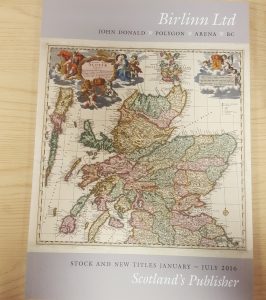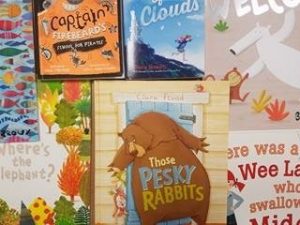“Create tastes rather than following them” Jeremy Poynting
The best part of being a small and independent publishing company based in Leeds with a special interest in poems and Caribbean literature is that they can create taste instead of following trends.
Jeremy Poynting introduced a poetry small press: the Peepal Tree Press where two people are involved in full-time supported by six part-time helpers. Their aim is to encourage the authors and work with professionals in order to have the books in the hands of the consumer. This is why, currently, they publish fiction, poetry and general academic titles. The key point is to encourage books to be accessible to a more general reader. They publish writing directly from the Caribbean and this makes them actually the biggest publishing house in the United Kingdom for Caribbean literature. They operate because books should make a difference and take part of a dialogue about society as they think the process of working with authors is important and they can afford to take their time.
Because they are helped with funds from the Arts Council, they do not need to be market oriented. One of the objectives is to have “Great Art for everyone”: they do not only publish books but they are involved in social media events and one important part of a cultural company is the connection with people. The objectives are different than a big publishing house; they cannot have economy of scale but they try to keep the backlist alive.
So, one huge value brought by an independent publisher is the capacity of doing new things even if the audience is limited for a poet. Besides, because they are outside of London, they can develop a very international target market. They want to bring international writing into the country and to print diversity literary travel.
The story began in a garage and crossed the sea to the Caribbean
The objective is not only selling books in the U.K. but also selling books in the Caribbean because they want to nurture the roots from which they are coming from. The Caribbean’s literature is an essential part of British and Scottish culture.
Why is the area producing a Nobel Prize but does not have a publishing industry developed?
Shivanee Ramlochan explains “It is really difficult to be published in the Caribbean”. It is hard to get recognition of your work, and even harder if you write poetry because poetry is not old in the Caribbean. She is a poet from Trinidad and she wants to learn publishing skills from manuscript to print books and eBooks. Now she would like to teach others back to the Caribbean.
The publishing sector in the Caribbean is focused only on two parts of the market: university presses and professional but not fiction. Moreover the market size is very little and the number of booksellers is very small. There are few proper bookstores, the products are more focused on Christian books and schoolbooks.
The publishing sector is living through history of colonialism and there are a few people interested in Jamaican books; in Grenada for instance. There is no distributor in the Caribbean and it is difficult to reach every single island coming from the others. They transit through Miami to go to others islands and there are no direct flights.
But Shivanee Ramlochan shows us that it is not impossible to write poetry and to be published.
“Books should make a difference and be part of a dialogue.” Jeremy Poynting
So what about discovering poetry from Caribbean ? It is also a way for us to remember all the links we have with the Caribbean people. They are part of European history, indeed not the easiest part we’d like to face.
By Lucie Santos








 Mention the name Hodder Gibson to anyone who was educated in Scotland and there are immediate flashbacks to countless hours spent revising with their past papers. So when Peter Dennis, Managing Director at Hodder Gibson arrived on Thursday afternoon, it was like a blast from the past for many of us.
Mention the name Hodder Gibson to anyone who was educated in Scotland and there are immediate flashbacks to countless hours spent revising with their past papers. So when Peter Dennis, Managing Director at Hodder Gibson arrived on Thursday afternoon, it was like a blast from the past for many of us.
 At 2.45pm on 6th October, with a retinue of publishing students bearing boxes of precious periodicals, Nikki Simpson (Business Manager at the PPA – Professional Publishers Association) strode through the seemingly endless corridors of the University of Stirling. She was a woman with a mission. Her aim, to convert Unbelievers – those students convinced that their future lies 100% in the world of book publishing rather than that of the magazine.
At 2.45pm on 6th October, with a retinue of publishing students bearing boxes of precious periodicals, Nikki Simpson (Business Manager at the PPA – Professional Publishers Association) strode through the seemingly endless corridors of the University of Stirling. She was a woman with a mission. Her aim, to convert Unbelievers – those students convinced that their future lies 100% in the world of book publishing rather than that of the magazine. There are three areas of periodical publishing – Consumer, B2B and Contract. The boxes were soon opened and magazines representing each of these areas passed around. To appreciate magazines, it’s vital to get hands on and we certainly did. Delighted sounds filled the room as we were given a design lesson in the art of the mag. Everyone is familiar with the glossy mag, but what caught the imagination in Nikki’s presentation was the sheer variety of paper stock used and glorious typography and images. Smooth, matt, cut outs, glow in the dark, QR codes, VR – seemingly unlimited creative options. Titles like Modern Farmer, Delayed Gratification, Boat, Little White Lies, Oh Comely, ‘Sup, the Gentlewoman and Hot Rum Cow had many fans and turned the head of many a committed book careerist on the day.
There are three areas of periodical publishing – Consumer, B2B and Contract. The boxes were soon opened and magazines representing each of these areas passed around. To appreciate magazines, it’s vital to get hands on and we certainly did. Delighted sounds filled the room as we were given a design lesson in the art of the mag. Everyone is familiar with the glossy mag, but what caught the imagination in Nikki’s presentation was the sheer variety of paper stock used and glorious typography and images. Smooth, matt, cut outs, glow in the dark, QR codes, VR – seemingly unlimited creative options. Titles like Modern Farmer, Delayed Gratification, Boat, Little White Lies, Oh Comely, ‘Sup, the Gentlewoman and Hot Rum Cow had many fans and turned the head of many a committed book careerist on the day.